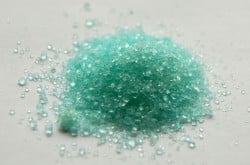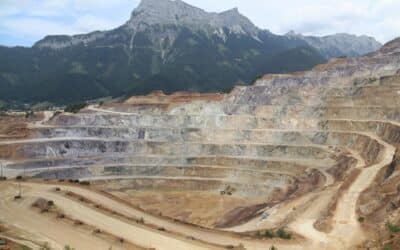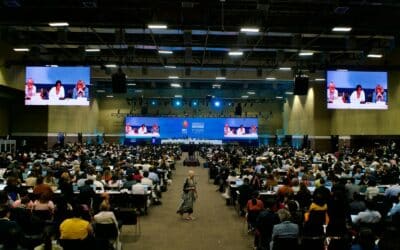The Pacific Ocean, just off Canada’s west coast, has a new suspect ingredient: 100 tonnes of iron sulphate.
An American entrepreneur with a controversial past in geoengineering dumped the iron dust into the Pacific near the Haida Gwaii islands in July after allegedly telling local villagers that the “experiment” was a salmon restoration project, according to ETC Group, an international environmental watchdog with offices in Canada.
Russ George, a U.S. businessman, “blatantly violated” two international moratoria when he dumped the iron dust, Jim Thomas of ETC told Torstar News Service on Monday — a UN convention and the London Convention on the disposal of wastes at sea.
Ocean iron fertilization — a highly controversial practice — means stimulating plankton blooms in open water, which then seize carbon from the atmosphere and, on sinking to the bottom of the ocean, store it away. Earlier experiments, about a dozen mostly done by universities, have shown mixed results.
George did not respond to requests for comment from Torstar News Service but told the Guardian the two moratoria are a “mythology” and do not apply to his project.
He called the experiment the “most substantial ocean restoration project in history,” and said it has collected a “greater density and depth of scientific data than ever before.”
George, the former chief executive of Planktos Inc., made headlines in 2007 after failed attempts to make similar dumps near the Galapagos and Canary Islands. His ship was barred from ports by the Spanish and Ecuadorean governments. Planktos abruptly closed down months later.
According to the president of the Haida nation, Guujaaw, a village on the islands was specifically told the dump would benefit the ocean.
“They agreed, believing fully that it was a positive project . . . for salmon enhancement,” Guujaaw told Torstar News Service.
He added they would have never agreed if they known it violated the international agreements.
“We live off marine environment,” said Guujaaw, who uses one name. “We would never do anything to wreck it.”
Thomas of ETC said George convinced the villagers to set up a company to channel more than $1 million of its own funds into the project. He promised it would help sell carbon credits and that would earn money for the community.
Satellite images obtained by the Guardian confirm George’s claim that the iron has spawned an artificial plankton bloom as large as 10,000 square kilometres.
What impact that kind of a dump will have on the ocean and marine life isn’t yet clear.
Ocean iron fertilization has been defined by the Royal Society, an international scientific agency, as having “high potential for unintended and undesirable ecological side effects,” and not proven effective.
Charles Miller, an oceanographer at Oregon State University, echoed that sentiment.
“There are lots of unanswered questions,” Miller told Torstar News Service. “How much did he dump? Who was monitoring it? What the long-term impact will be . . . is difficult to assess.”
Given George’s history, “it is unlikely he got anyone qualified to co-operate with him,” said Miller.
John Cullen, an oceanographer at Dalhousie University, told the Guardian that some possible effects, such as deep-water oxygen depletion and alteration of distant food webs, should rule out ocean manipulation.
“History is full of examples of ecological manipulations that backfired,” he said.



